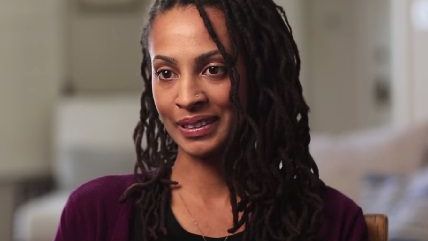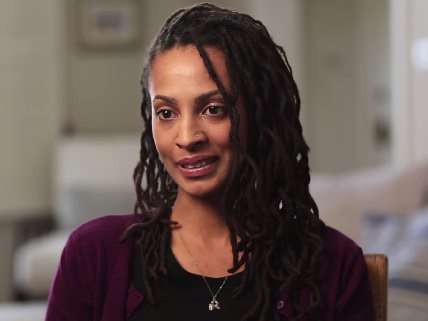Central Allegation in The Hunting Ground Collapses Under Scrutiny
Undermines entire documentary


The Hunting Ground, a documentary about campus sexual assault that features interviews with alleged survivors of rape, has been criticized ever since its February debut. The film was as polarizing as any other high-profile piece about the purported college rape crisis—victims' rights groups praised it, civil libertarians expressed skepticism.
Today, that skepticism seems vindicated. Slate's Emily Yoffe just published a comprehensive review of the alleged sexual assault of Harvard University law student Kamilah Willingham, one of documentary's central purported victims. Yoffe found significant discrepancies between what The Hunting Ground claimed happened to Willingham and what actually happened; these differences are so stark that they call into serious question whether the accused student, Brandon Winston, did anything remotely criminal. Yoffe's report deals a serious blow to The Hunting Ground's credibility, undermining the film's message that college is a place where innocent girls are preyed upon by sociopathic rapists.
From Slate:
I looked into the case of Kamilah Willingham, whose allegations generated a voluminous record. What the evidence (including Willingham's own testimony) shows is often dramatically at odds with the account presented in the film.
Willingham's story is not an illustration of a sexual predator allowed to run loose by self-interested administrators. The record shows that what happened that night was precisely the kind of spontaneous, drunken encounter that administrators who deal with campus sexual assault accusations say is typical. (The filmmakers, who favor David Lisak's poorly substantiated position that our college campuses are rife with serial rapists, reject the suggestion that such encounters are the source of many sexual assault allegations.) Nor is Willingham's story an example of official indifference. Harvard did not ignore her complaints; the school thoroughly investigated them. And because of her allegations, the law school education of her alleged assailant has been halted for the past four years.
The filmmakers present what happened between Kamilah Willingham and Brandon Winston as a terrifying warning to female college students and their parents, and a call to arms to government officials and college administrators. They offer the case as prima facie evidence that draconian regulations, laws, and punishments are required to end what they say is a scourge of sexual violence. But there is another story, which the filmmakers do not tell. It's a story in which Willingham's accusations are taken seriously and Winston's actions are thoroughly investigated, first by Harvard University and later by the Middlesex County district attorney's office. It's a story in which neither the school nor the legal system finds that a rape occurred, and in which Willingham's credibility is called seriously into question. It's a story of an ambiguous sexual encounter among young adults that almost destroyed the life of the accused, a young black man with no previous record of criminal behavior. It's a story that demonstrates how deeply the filmmakers' politics colored their presentation of the facts—and how deeply flawed their influential film is as a result.
Read Yoffe's full article here.
Of the details Yoffe reported, I was must struck by the fact that Willingham had offered Winston—an old acquaintance who had come to Willingham's apartment to rekindle their friendship—cocaine, which they both consumed. The night eventually included a trip to a bar in the company of a female friend of Willingham's. All three drank copious amounts of alcohol, and Winston and the friend ("KF") made out on the dance floor. If there was an initiator in this encounter, it seems to have been KF.
The trio returned to Willingham's apartment at 2 a.m. And guess what? Their recollections of what happened aren't that great (alcohol and cocaine tend to have that effect). All collapsed on a bed at various points; there was some kissing and sexual contact, but no intercourse. There's not a shred of evidence that Winston did anything criminal to either of the girls, aside from Willingham's error-riddled assertions that he did. Some of her claims border on parody: she insisted that Winston had raped KF and a bloody condom in her wastebasket was the proof. But according to a lab test, it was Willingham's blood on the condom, not KF's, and no traces of Winston's DNA were found.
Yoffe wrote that Winston "was hardly a perfect gentleman" on the night in question, and perhaps that's true. But only if one assumes that all men, by nature of their physiology (or perhaps because of rape culture), are always the instigators in sexual encounters, and that women have no sexual agency whatsoever, could it be said that he was a rapist.
For his non-criminal ungentlemanly conduct, Winston's academic future was put on hold for years. He was prosecuted, and eventually acquitted of felony charges but convicted of a misdemeanor, "touching of a non-sexual nature." The Hunting Grounds holds this up as a travesty of justice, and it is. But, as Yoffe persuasively argues, that victim in this case was the accused, not the accuser.
What does it say about the accuracy of the rest of the film, if it got this important story so wrong?


Show Comments (132)